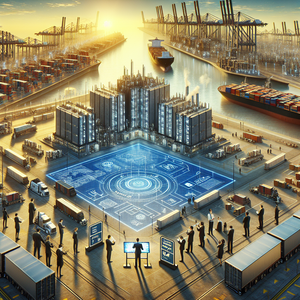
Navigating the 2025 Tariff Landscape: Impacts on the Packaging Industry and Strategies for Adaptation
The global packaging industry, valued at over $1 trillion, finds itself at a critical juncture in 2025. The complexities of evolving trade policies, particularly tariffs on raw materials like aluminum, plastics, and paper, are reshaping the sector. These tariffs, rooted in policies dating back to the Trump administration, have created ripple effects that extend far beyond U.S. borders. Coupled with retaliatory measures from key trading partners such as Canada and Mexico, the packaging sector is grappling with rising costs, disrupted supply chains, and an urgent need for adaptation.
Job Summaries:
Supply Chain Analyst:
- Supply chain analysts are pivotal in addressing the disruptions caused by tariffs.
- By leveraging data analysis tools, they assess the impact of rising material costs and identify alternative sourcing options in emerging markets like Vietnam and India.
- Their expertise ensures logistics are optimized, costs are minimized, and supply chain delays are avoided.
Packaging Engineer:
- Packaging engineers innovate to keep designs cost-effective while prioritizing sustainability.
- They develop bio-based plastics.
- They optimize packaging structures to use less material.
- They combine creativity with technical expertise in materials science and design software like CAD.
Sustainability Manager:
- Sustainability managers implement eco-friendly practices.
- They establish closed-loop recycling systems.
- They source locally produced materials.
- They balance cost-efficiency with environmental responsibility.
- They meet consumer and regulatory demands for greener solutions.
Global Trade Compliance Manager:
- Trade compliance managers navigate complex international trade policies.
- Ensuring businesses adhere to regulations.
- Avoid penalties.
- Maintain operational continuity.
- Mitigate risks from retaliatory tariffs and policy changes.
Procurement Specialist:
- Procurement specialists identify cost-competitive suppliers
- Negotiate favorable terms
- Explore domestic alternatives to mitigate the impact of rising material costs caused by tariffs
- Help companies maintain profitability
Materials Scientist:
- Materials scientists drive innovation by developing alternatives to tariff-affected materials.
- They work on biodegradable packaging and composite materials.
- Their work aligns cost reduction with environmental goals.
Logistics Manager:
- Logistics managers optimize transportation routes
- Manage freight expenses
- Ensure timely delivery of materials
- Keep supply chains intact despite economic pressures caused by tariffs
Packaging Operations Manager:
- Operations managers streamline manufacturing processes by sourcing local materials.
- Adopting cost-saving production methods.
- Integrating new technologies to maintain efficiency and profitability amid rising costs.
Customs Broker:
- Customs brokers ensure imported materials clear customs efficiently while minimizing delays and compliance risks.
- Their expertise in tariff classifications and documentation is invaluable in the tariff-laden packaging industry.
Automation Engineer:
- Automation engineers implement robotics and advanced automation systems to boost efficiency.
- Reduce reliance on manual labor.
- Optimize production lines.
- Help companies remain competitive in a challenging economic landscape.
Trade Policy Analyst:
- Trade policy analysts provide insights into the broader economic implications of tariffs.
- They analyze global trade trends and economic data.
- They empower companies to make informed decisions and adapt proactively.
Packaging Designer:
- Packaging designers redesign packaging to reduce material usage while maintaining functionality and brand appeal.
- They balance aesthetics, sustainability, and cost-effectiveness in response to tariffs.
Financial Analyst – Packaging Sector:
- Financial analysts assess the economic impact of tariffs on company operations.
- Offering forecasts and resource allocation strategies to navigate financial challenges.
- Remaining strategically positioned for growth.
Operations Research Analyst:
- Operations research analysts use mathematical modeling and data analysis to optimize supply chains.
- They reduce costs.
- They improve resource allocation.
- Their work is critical in adapting to a tariff-heavy economic environment.
Export Sales Manager:
- Export sales managers develop strategies to explore markets less affected by tariffs.
- Diversify revenue streams and reduce dependency on regions with high trade barriers.
- Help companies expand globally while mitigating risks.
The 2025 tariff environment presents undeniable challenges for the packaging industry, but it also offers opportunities for growth and innovation. By embracing strategic sourcing, sustainability, and technological advancements, companies can position themselves for long-term success. For professionals, the sector offers dynamic career paths that intersect with some of the most pressing global challenges, from trade policy to environmental sustainability. The packaging industry is not just navigating these complexities—it is redefining its future. Now is the time to seize the opportunities within this evolving landscape. Whether you're a supply chain expert, sustainability advocate, or automation innovator, your skills will play a vital role in shaping an industry poised for transformation.
Explore More Jobs

